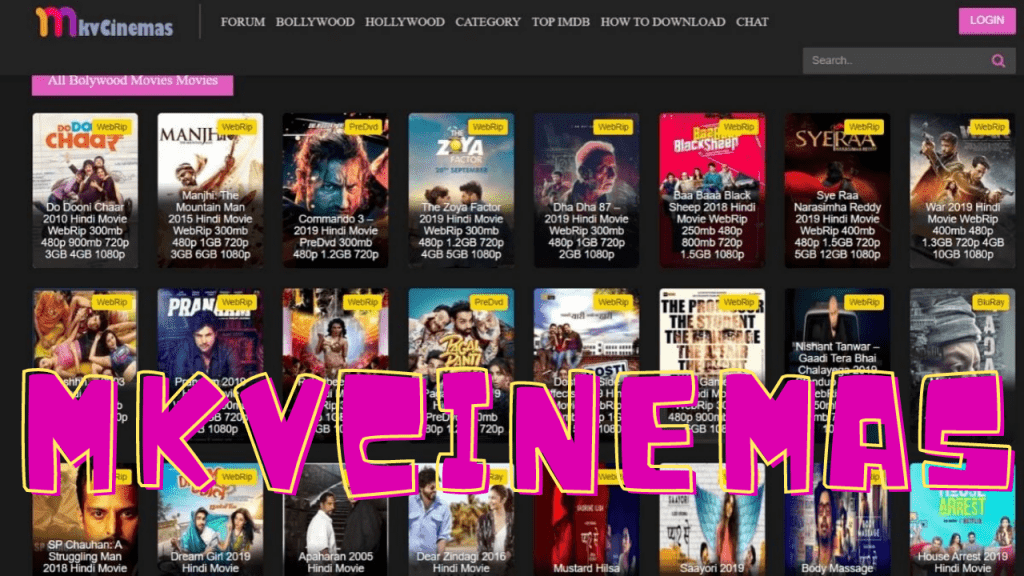The world of cinema is ever-evolving, and with it, the ways we consume movies have changed dramatically. One such evolution is the rise of the MKV format, which has become a popular choice for movie enthusiasts around the globe. MKV, short for Matroska Video, is a flexible multimedia container format that allows for the seamless storage of video, audio, subtitles, and images in one file. As more viewers turn to MKV cinema for their entertainment needs, it’s essential to understand what makes this format stand out and how it can enhance your viewing experience.
In the realm of digital media, MKV cinema has gained traction due to its ability to support high-quality video and audio without sacrificing file size. This is particularly appealing to those who appreciate the finer details in films, such as intricate cinematography or immersive soundtracks. By harnessing the power of MKV, filmmakers and content creators can deliver their artistic vision in a way that resonates with audiences, making it an integral part of modern cinema.
Moreover, the versatility of MKV files caters to various devices and platforms, making it easy for viewers to enjoy their favorite films anywhere and anytime. Whether you’re watching on a smart TV, computer, or mobile device, MKV cinema provides an optimal experience tailored to your preferences. This article will delve deeper into the world of MKV cinema, answering essential questions and exploring the format's impact on the film industry.
What is MKV Cinema?
MKV cinema refers to the use of the Matroska Video format for storing and distributing films. This format allows for multiple audio tracks, subtitle options, and chapters, making it a versatile choice for filmmakers. The MKV format is particularly popular among indie filmmakers and online streaming platforms due to its flexibility and support for various codecs.
Why Choose MKV Format for Movies?
The MKV format has several advantages that make it a preferred choice for movie lovers:
- High-quality video and audio: MKV files support various codecs that maintain the integrity of the original content.
- Multiple audio tracks: Viewers can choose their preferred language or audio commentary without needing multiple files.
- Subtitles support: MKV allows for embedded subtitles, enhancing the viewing experience for non-native speakers.
- File size efficiency: Despite its high-quality output, MKV files tend to be smaller than other formats.
How Does MKV Cinema Impact the Film Industry?
As MKV cinema continues to gain popularity, its influence on the film industry becomes more apparent. This format allows independent filmmakers to reach wider audiences without the constraints of traditional distribution methods. By utilizing online platforms for distribution, creators can showcase their work in MKV format, making it accessible to viewers worldwide.
Are There Any Limitations to MKV Cinema?
While MKV cinema offers many benefits, there are some limitations to consider:
- Compatibility issues: Not all devices support MKV files, which may require additional software or converters.
- File size concerns: Although MKV files are generally smaller, high-quality videos can still take up significant storage space.
How to Play MKV Files on Different Devices?
Playing MKV files is relatively straightforward, but it varies depending on the device. Here are some tips:
- Smart TVs: Most modern smart TVs support MKV playback, but check your device's specifications.
- Computers: Use media players like VLC or MPC-HC, which support MKV files natively.
- Mobile devices: Download apps such as MX Player or VLC for Android and iOS to play MKV files.
Is MKV Cinema the Future of Film Distribution?
As the digital landscape continues to evolve, MKV cinema may play a pivotal role in the future of film distribution. Its versatility and efficiency cater to the needs of both creators and consumers, making it a compelling option for filmmakers looking to reach new audiences. With the rise of streaming platforms and the growing demand for high-quality content, MKV cinema seems poised to thrive in the coming years.
Conclusion: Embracing the MKV Cinema Revolution
In conclusion, MKV cinema represents a significant shift in how films are created, distributed, and consumed. With its numerous advantages, including high-quality output, multiple audio tracks, and subtitles, the MKV format is undoubtedly changing the game for filmmakers and audiences alike. As we move forward into a new era of digital media, embracing MKV cinema may very well be the key to experiencing the future of film.
You Might Also Like
Exploring The Multifaceted Career Of Harry Connick JrUnraveling The Mystery Of The Robin Tunney Accident
Understanding The Trump Stroke: A Political And Personal Perspective
Unraveling The Mystique Of Subhosrr MMS
Exploring The Charismatic Journey Of Matt Bomer
Article Recommendations
- Latest News On Gloria Copeland Health
- Kaitkrems Leaked
- Is Jennifer Garner Related To James Garner
- Antony Starr Wife
- Janine Tugonon Husband
- Darkzadie
- Camilla Araujo Sex Tape
- Alaina_elliss Leaked
- Livvy Dunne Leaked
- Laura Cover


